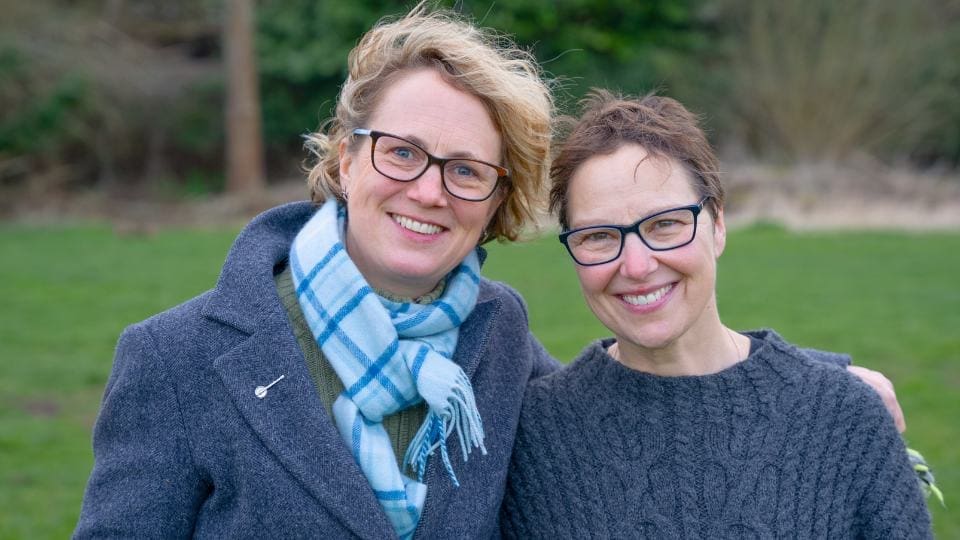
Young onset dementia: perimenopause and menopause
The symptoms of perimenopause and menopause have similarities with dementia symptoms. How do you recognise which is which?
Suzy – whose mother was diagnosed with hydrocephalus in her 50s – reflects on her dementia journey and the support she received from the Helpline.
My mum was my life. She was fun and had a great sense of humour. I had a really happy childhood.
Mum worked in a bakery for 30 years and was known as ‘Barb from the bakery’. She started to experience mobility issues and one day she fell at work. Her boss said she wasn’t safe enough to work there anymore. It was a devastating time for Mum. It completely destroyed her, and she lost her sense of purpose and self. That was the start of her dementia journey.
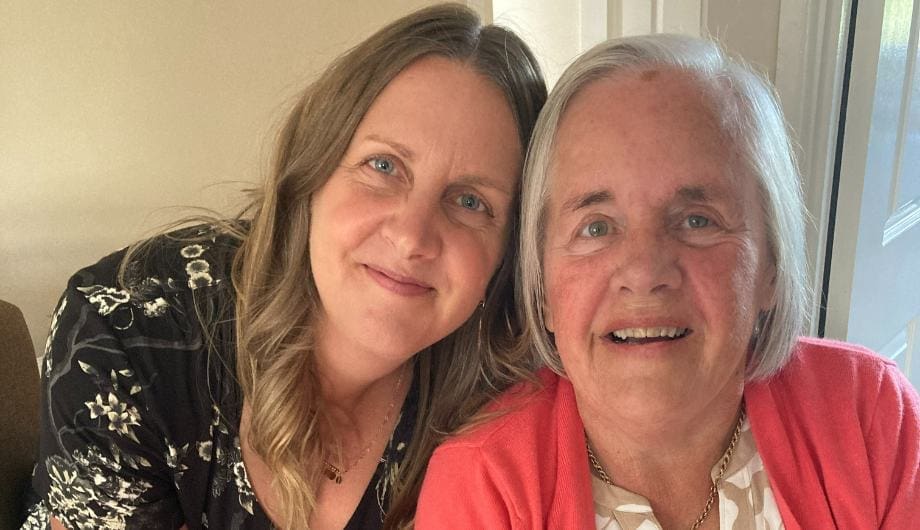
We didn’t think it was possible that someone Mum’s age could develop dementia, especially as her main symptom was mobility problems and not memory loss. She was in her fifties and I was in my twenties. We had many trips to the GP, who put it down to menopause, anxiety and depression, but none of them really fitted.
Mum finally saw a locum GP who referred her for a brain scan. She was then diagnosed with hydrocephalus: a build-up of fluid in the brain which can cause a rare form of dementia. There was hardly any information about it anywhere. I was aware it was the only type of dementia that could be reversed through brain surgery, so we had hope. But Mum’s surgery didn’t work.
As time went on, Mum’s mobility problems became challenging, and her memory declined. She stopped going out as much and friends fell away. She really needed support and it put pressure on our family. My dad was still working and also caring for Mum. I had just got married and things in my life were changing.
After a few years, I asked Mum and Dad if we could all live together. My children were three and five at the time. Through working in social services and dementia care, I knew that there was such a lack of support. We had to pull together as a team, with Mum playing centre forward.
Mum agreed to living with us, which was out of character for her. She would never talk about her dementia diagnosis and struggled with her emotions. But she knew she needed support. It was the best decision we’ve ever made. It wouldn’t work for every family, and it isn’t easy. But we lived every day looking for the positives and a lot of the time we just felt like a normal family. It was extraordinary.
Right until the very end of her life, Mum absolutely loved my girls. I didn’t realise how much she would give my children, teaching them so much about love and patience. They are fantastic teenagers now because of her. She lived for them, and she was the constant in their lives.
The hardest thing throughout the dementia journey wasn’t caring for Mum; it was dealing with the professionals around her. I was relying on people who really didn’t know Mum and didn’t spend much time with her. There were lots of tick boxes, forms and different people coming in and out. There was a lack of consistent support.
The girls needed support too and we just couldn’t find it for them. We went to a few young carers’ groups, but the activities weren’t suitable for them. They just needed someone to ask them if they were okay. Their primary school was amazing; we even did a talk for teachers about what it’s like to care for someone living with dementia. But all support dropped off when they went to secondary school.
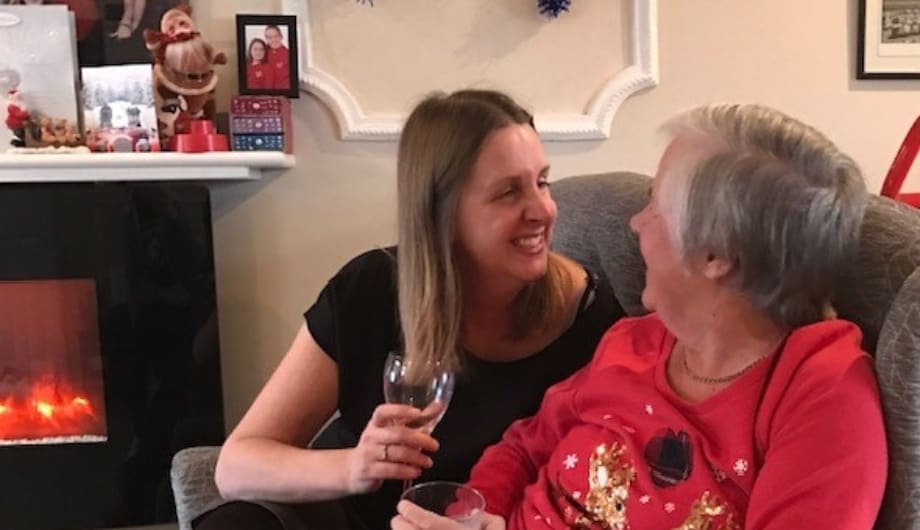
Moving to a care home was not in Mum’s advance care plan – her wish was to die at home, and we were prepared for that. But because of a lack of carers, she had to move to a care home with seven days’ notice. She hadn’t left the house for two years. I was at crisis point, and that’s when I called the Admiral Nurse Dementia Helpline, which I found extremely valuable.
The dementia specialist Admiral Nurse on the phone gave me some really practical advice about moving Mum into a care home, which was so useful. She also helped me with applying for NHS continuing healthcare funding to cover the cost of Mum’s care, which was such a difficult process. We didn’t get granted funding until the day before Mum died, despite the fact that by then, she couldn’t walk, talk or eat.
Most of the time we didn’t need much support. But in those times of crisis, knowing the Helpline was there was reassuring. I think every family living with dementia should have an Admiral Nurse. We didn’t have one in our area, but I know what a difference it would have made to have a single point of contact throughout every stage of dementia. We didn’t have anyone to walk beside us on that journey.
Mum never recovered after moving to the care home. She never smiled again or spoke another word. It was really hard for us all. But thankfully, she had a beautiful death. I told Mum that it was okay for her to go. I spoke to her about everything that we had planned, and that we were all going to be okay. She was so tired by the end. I said she could close her eyes and she just let go.
Losing Mum was beyond devastating. But I can talk about her now and find it helpful to share our story. I want other people to be able to do that in a supported way too.
Our free, confidential Dementia Helpline is staffed by our dementia specialist Admiral Nurses who provide information, advice, and support with any aspect of dementia, including young onset dementia.

The symptoms of perimenopause and menopause have similarities with dementia symptoms. How do you recognise which is which?
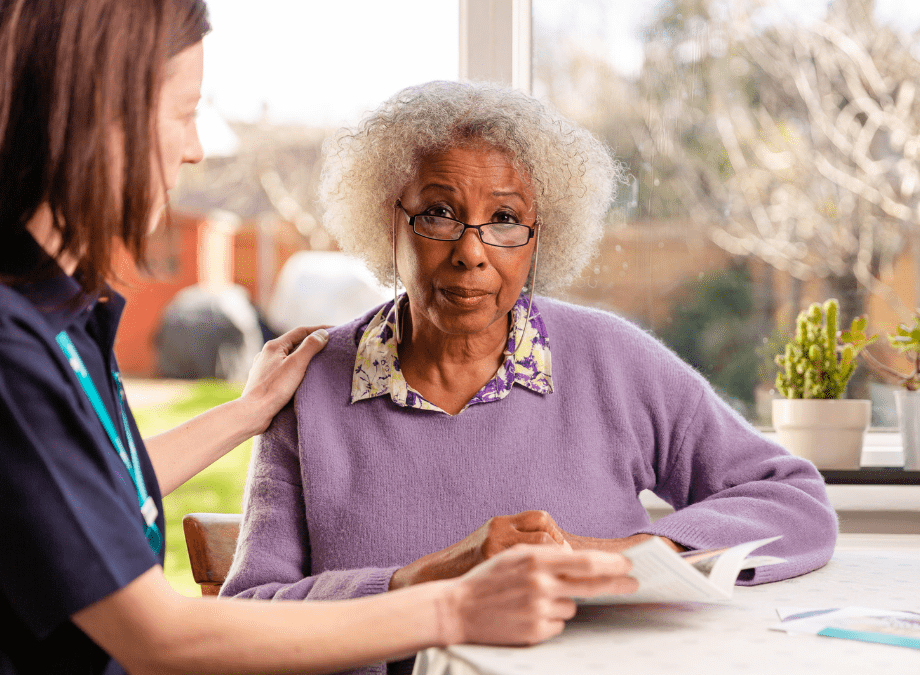
Help us raise vital funds, improve care and support for families facing dementia and spread the word about our specialist dementia nurses.
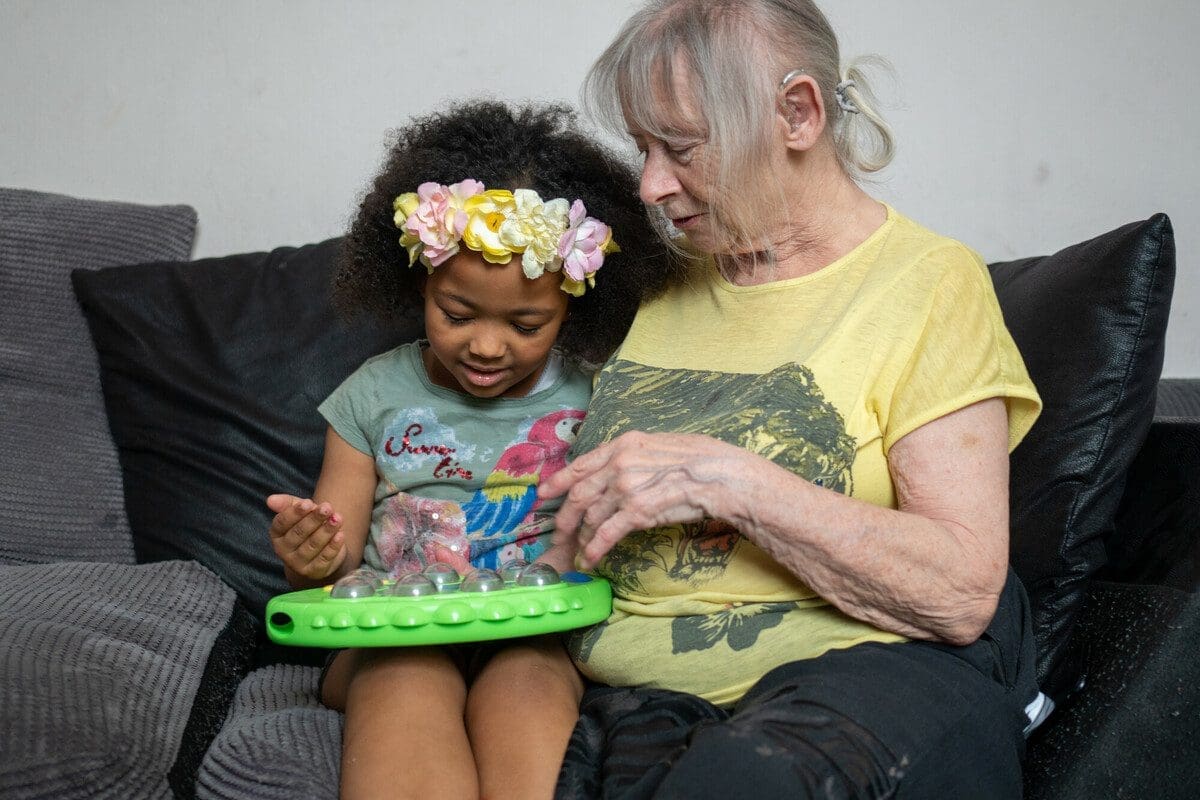
Sharing your story with Dementia UK can help to inspire and reassure others who may be going through similar things.